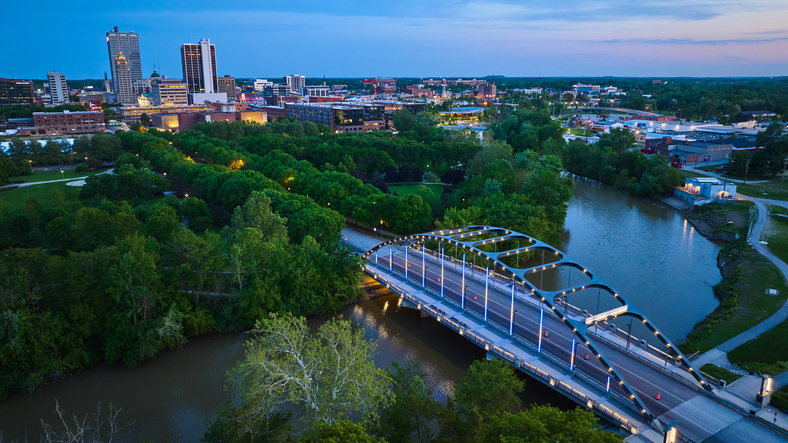The MLK Bridge In Philadelphia Reopens After Two Years
The MLK Bridge In Philadelphia Reopens After Two-Year Restoration

Philadelphia residents are celebrating the grand reopening of the iconic Martin Luther King Jr. Bridge after a two-year restoration project that revitalized one of the city’s most historic structures. The bridge, which connects West Philadelphia to the Schuylkill River Trail, officially reopened to drivers this morning, marking a major milestone in the city’s efforts to enhance transportation infrastructure and preserve its cultural landmarks.
The extensive restoration, which began in 2023, included structural repairs, upgrades to pedestrian and cyclist pathways, and a complete overhaul of the bridge’s roadway. City officials and engineers worked tirelessly to ensure the bridge would not only be safer for drivers but also more accessible to pedestrians and cyclists, reflecting Dr. King’s legacy of unity and progress.
A Fresh Look, Stronger Structure
“The reopening of the Martin Luther King Jr. Bridge represents much more than just a road reopening—it’s a symbol of the city’s commitment to progress and preservation,” said Mayor James Kenney during a ribbon-cutting ceremony held earlier today. “This bridge connects neighborhoods, communities, and, of course, the spirit of Dr. King, whose vision for equality continues to guide us.”
The $20 million restoration included the installation of new steel supports, resurfacing of the bridge deck, and a complete update of lighting and signage for enhanced visibility. New pedestrian and bike lanes now line both sides of the bridge, making it easier and safer for non-motorized travelers to cross between the city’s bustling West and East sides.
A Bridge to the Future
The Martin Luther King Jr. Bridge, which opened in 1976, is named after the civil rights leader who fought for racial equality, justice, and nonviolent activism. The bridge’s revitalization was a part of Philadelphia’s broader efforts to celebrate the legacy of Dr. King while investing in the infrastructure needed to meet the demands of a growing city.
“This bridge is more than just concrete and steel; it’s a testament to the progress we’ve made, and the work that still lies ahead,” said City Council President Darrell Clarke. “The restoration has ensured that this vital connection will continue to serve as a conduit for the diverse communities that make up this great city.”
Community Impact
The bridge serves as a critical connector between neighborhoods on both sides of the Schuylkill River, easing traffic and providing a direct route for residents commuting across the city. The restoration has been particularly important for the thousands of drivers, cyclists, and pedestrians who rely on the bridge every day.
“It’s been a long two years, but the wait was worth it,” said local resident Tamika Harris, who frequently uses the bridge to commute to work in Center City. “The upgrades make it feel safer, and the new bike lanes are a huge bonus for people like me who bike to work.”
Looking Ahead
With the bridge now open, officials are turning their attention to other infrastructure projects around the city aimed at further improving the connectivity and safety of Philadelphia’s roadways and public spaces. The completion of the Martin Luther King Jr. Bridge restoration is just one part of a larger initiative to modernize the city’s transportation network and make it more sustainable for future generations.
As of today, the bridge is fully open to all drivers, cyclists, and pedestrians, offering a renewed connection between the city’s neighborhoods and a lasting tribute to the enduring legacy of Dr. Martin Luther King Jr.



